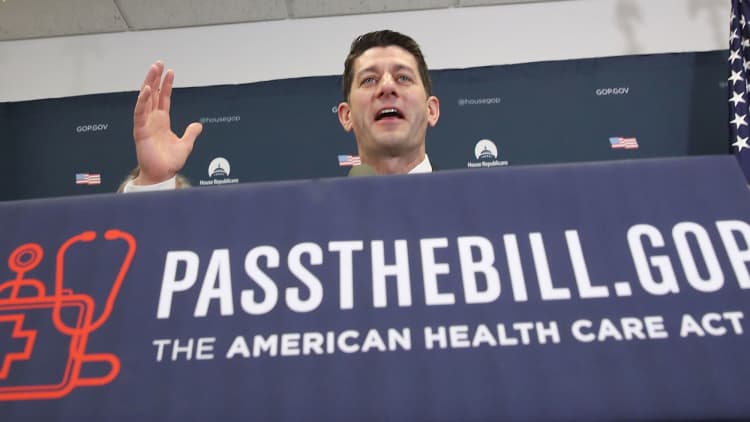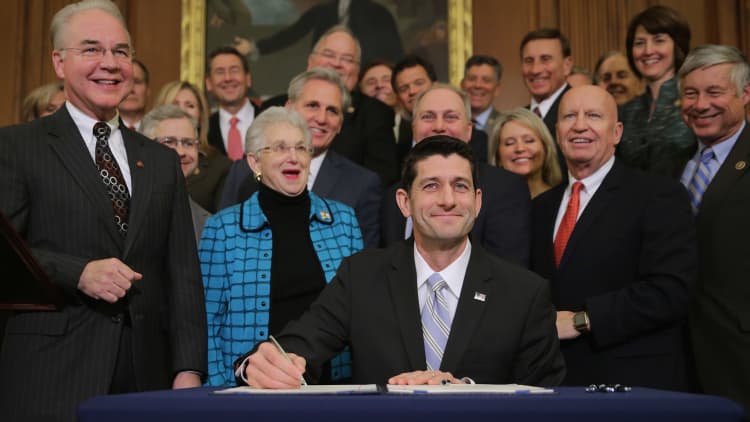
As they scramble for "yes" votes on their health-care plan, House GOP leaders have a nightmare scenario in mind.
It happened in real life on Sept. 29, 2008, when the House first voted on a Wall Street bailout intended to stem the financial crisis. In a swirl of uncertainty, Republican members stampeded to "no," defeated the measure and watched the tumble by more than 700 points. The same thing could happen on the GOP health bill, a veteran member told CNBC on Thursday — only bigger.
"If this goes down, we could take a 1,000-point market hit," the member said. To be sure, traders and investors tell CNBC the market likely will go lower if there is no compromise Thursday, but the decline won't likely come near a 1,000-point drop. That would represent a nearly 5 percent drop in the Dow, a bit less than the 7 percent decline when the index fell 777 points in September 2008.
A lack of compromise would also thump the idea that Trump-era Republicans are capable of governing, rather than just acting in opposition.
Fear of that outcome is driving the frenzy to round up votes — even if it means radically changing the legislation hours before it reaches the floor to delete "essential health benefits" requirements, among others. No one, the member says, is thinking about whether this bill, or any revised version, can pass the Senate and be signed into law by President Donald Trump.
House passage for its own sake has become the goal. And that passage remains in doubt, to say the least. Republicans need to hold 215 of their 237 House votes to pass the American Health Care Act. That's why the House Freedom Caucus, with as many as 40 members, has the leverage to force Speaker Paul Ryan and Trump to make major concessions. When some of them go the White House before the vote, House leaders fear they will demand even more than the end of essential health benefits.
The problem in ceding to Freedom Caucus demands is that it imperils support from Republican moderates, including the 23 members who represent districts won by Hillary Clinton last November. The AHCA faces serious Republican resistance from both ends of the ideological spectrum.
As a result, Ryan may draw a line later Thursday, put the bill on the House floor, and dare members to defy both him and the new president, who remains highly popular with the Republican base. Part of the dare is that, having railed against Obamacare for seven years, members will ultimately feel unable to vote against its repeal even if they dislike what will replace it.
That's a huge risk for the speaker himself, as well as for the viability of Trump's governance. It would cast doubt over Trump's ability to deliver on other priorities.
One priority of special importance to business — tax reform – would still hold healthy prospects. "God created Republicans to cut taxes," the member said.
WATCH: The GOP's health-care vote today is a huge deal...here's what the experts said on CNBC



